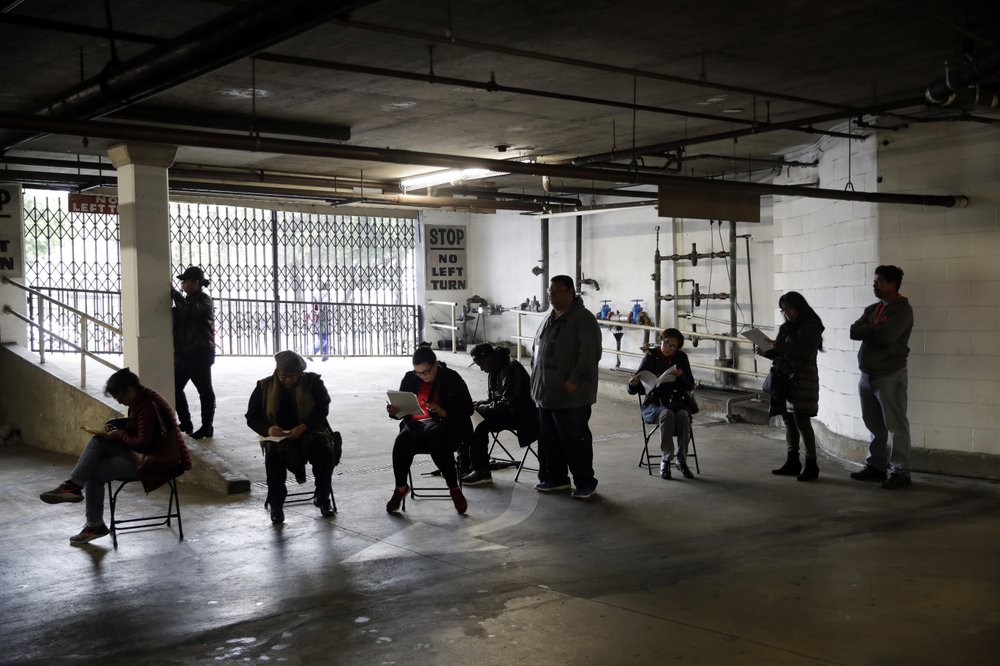
Unionized hospitality workers wait in line in a basement garage to apply for unemployment benefits at the Hospitality Training Academy Friday, March 13, 2020, in Los Angeles. (File photo: AP)
Beijing (People’s Daily) - The number of working hours lost across the world in the first half of 2020 was significantly worse than previously estimated, while the highly uncertain recovery in the second half of the year will not be enough to go back to pre-pandemic levels even in the best scenario and risks seeing continuing large scale job losses, warns the International Labour Organization (ILO).
According to the ILO Monitor: COVID-19 and the world of work: 5th Edition, there was a 14 percent drop in global working hours during the second quarter of 2020, equivalent to the loss of 400 million full-time jobs (based on a 48-hour working week). This is a sharp increase on the previous Monitor’s estimate (issued on May 27), of a 10.7 per cent drop (305 million jobs).
The new figures reflect the worsening situation in many regions over the past weeks, especially in developing economies. Americas, with 18.3 percent of working hour losses, would suffer the most, followed by Europe and Central Asia (13.9 per cent), Asia and the Pacific (13.5 per cent), Arab States (13.2 per cent), and Africa (12.1 per cent).
The new Monitor presents three scenarios for recovery in the second half of 2020: baseline, pessimistic and optimistic. It stresses that the long-term outcome will depend on the future trajectory of the pandemic and government policy choices.
According to different scenarios, the decrease in working hours will range from 1.2 percent (34 million full-time jobs) to 11.9 percent (340 million full-time jobs).
While countries have adopted policy measures with unprecedented speed and scope, the Monitor highlights some key challenges ahead such as finding the right balance and sequencing of health and economic and social and policy interventions to produce optimal sustainable labour market outcomes, protecting and promoting the conditions of vulnerable, disadvantaged and hard-hit groups to make labour markets fairer and more equitable, support especially for emerging and developing countries, etc.
“The decisions we adopt now will echo in the years to come and beyond 2030. Although countries are at different stages of the pandemic and a lot has been done, we need to redouble our efforts if we want to come out of this crisis in a better shape than when it started,” said ILO Director-General Guy Ryder.


